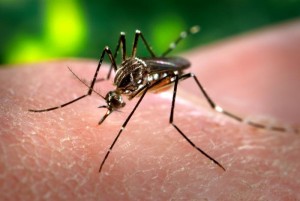By Jada Lister
Recent test results from the Center for Disease Control (CDC) have shown an unnerving connection between the mosquito-born Zika virus and babies born with microcephaly.
According to Brazilian officials, between 2014 and 2015, Brazil has seen the number of babies born with this condition increase from 150 to nearly 3,500.
The virus in question usually only causes a mild rash and fever, but women who have had it, particularly those who had it during the first trimester of pregnancy, are at an increased risk of giving birth to children with this condition which causes permanent brain damage and the development of an abnormally small head.
Since May 2015, around 1.5 million Brazilian locals have been infected with the virus. The alarm was raised regarding microcephaly in October when doctors in the northern portion of Brazil noticed an unusual number of babies being born with small heads.
The Zika virus is spread by the Aedes mosquito, which also carries dengue and chikungunya fever. Dr. Lyle Petersen, the director of mosquito-borne diseases at the CDC, has identified the Zika virus in the placentas of two Brazilian women who miscarried, as well as the brains of two newborns who died. “The evidence is becoming very, very strong of the link between the two,” said Petersen.

Women in Brazil have been advised to put planned pregnancies on hold if at all possible, and if this epidemic continues they may be advised to not get pregnant at all. The virus is spreading through the population fast, though there are no known cases of the virus contracted in the mainland U.S. However, there have been a fe
w isolated cases diagnosed in U.S. citizens returning from Brazil. There have also been smaller numbers of cases found in Colombia, El Salvador, French Guiana, Guatemala, Haiti, Honduras, Martinica, México, Panamá, Puerto Rico, Paraguay, Suriname, and Venezuela.
Scott Weaver, an expert in arboviruses and the director of the Institute for Human Infections and Immunity at the University of Texas said he is surprised the CDC hasn’t issued a statement warning pregnant women and women of childbearing age to avoid traveling to locations reporting circulation of the Zika virus.
Some fear that issuing such a warning may interfere with travel to Brazil this summer for the 2016 Olympics in Rio de Janeiro. There is also the additional concern that the summer Olympics could become a catalyst for further spreading the virus abroad.
El Niño has caused Brazil’s weather to be unusually hot and rainy this year, which will probably continue well into the summer as the Olympics grow nearer. With this will come more mosquitos and potentially answers to questions families affected by the startling side effects of the Zika virus have. In the meantime one can hope that scientists will develop a vaccine for the virus and put a stop to this mess before it gets anymore out of hand.







